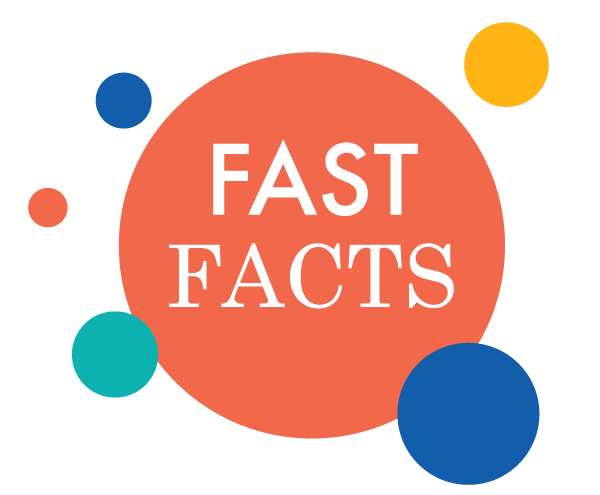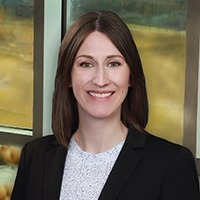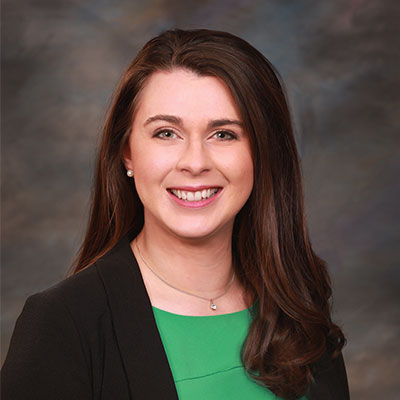When your child’s behaviors or thoughts are disrupting their day-to-day functioning, health, and well-being, they may have a behavioral or mental health disorder.
But what about when these unusual behaviors and feelings happen most of the time?
Behavioral health professionals at Children’s Nebraska are experts at treating children of all ages with behavioral or mental health disorders. Our mental health practitioners, psychologists, psychiatrists, and nutrition therapists work closely with each patient’s physician and school to provide individualized treatment, and improve their quality of life.
“We get to see really powerful change, and the families and kids are so appreciative. We get kids who are so paralyzed by anxiety, or so ill from an eating disorder, that they can’t go to school or make friends.
But we can turn things around so that they are able to rediscover themselves academically, socially, and as a member of a team or family. It feels like we have gotten their future back in line. It’s fulfilling and gratifying, and it’s great to make such a difference.”
—Michael Vance, PhD, Director of Behavioral Health, Children’s Nebraska
Make An Appointment
Phone 402-955-3900 | Fax 402-955-3920
What Sets Children’s Apart?
Your child will see providers who are board-certified and highly experienced:
- All of our psychiatrists are board-certified in child and adolescent psychiatry. Board certification requires physicians to voluntarily meet additional standards beyond basic medical education and licensing. This guarantees that our physicians are providing the most advanced, up-to-date treatments and care.
- We have providers who are certified in Parent Child Interaction Therapy (PCIT). PCIT is a treatment program for young children with behavioral and emotional disorders. It emphasizes improving the parent-child relationship and developing healthy family interactions.
- Our providers have experience in the treatment of patients with other health conditions associated with their behavioral health disorder, such as depression linked to diabetes and anxiety linked to asthma.
- The psychiatrists and psychologists partner together on medical charts and health maintenance, meaning we have strong communication between everyone on your child’s behavioral healthcare team.

Neuropsychology
Pediatric neuropsychology provides evaluation and consultation services for children and adolescents with certain medical conditions or injuries. Your child may be referred for a neuropsychological evaluation to help understand how a condition or injury affects their behavior and thinking. Children’s pediatric neuropsychologist collaborates with providers across specialties to provide comprehensive and personalized care.

- We have more than 1,700 outpatient appointments every month.
- Every month, we do about 200 telehealth visits — outpatient appointments via computers or smartphones — across Nebraska and Iowa.
- We were recognized as Omaha’s Best for Family Therapy, 2018 by Omaha Magazine.
Treatments & Services
We diagnose, evaluate, and treat children of all ages and their families. Our mental health services include:
- Individual therapy
- Family therapy
- Group therapy
- Nutrition therapy
- Mental health crisis care in the Emergency Department
- Parent-Child Interaction Therapy
- Psychological evaluation
- Psychiatric assessment and medication consultation
- Referral to our Eating Disorders Program
- TeleHealth
- Virtual reality therapy
Conditions We Treat
Our team of specialists provides care for a variety of behavioral health disorders. Some of the most common conditions we treat include:
-
Anxiety
If your child has an anxiety disorder, they may feel extreme, constant worry and fear. These feelings do not go away and may worsen over time. Even though everyone feels anxiety at some point, it is considered a disorder when it interferes with your child’s ability to complete daily activities. -
Attention Deficit Hyperactivity Disorder (ADHD)
Attention deficit hyperactivity disorder (ADHD) is a common brain disorder that causes inability to pay attention, hyperactivity (constantly moving about or fidgeting), and impulsivity (acting hastily, without thinking about long-term consequences).
-
Depression
Depression is a very serious mood disorder that may lead your child to feel sad or empty, lose interest in their favorite activities, have difficulty sleeping, experience anxiety or guilt, or change their eating habits. While everyone feels symptoms of depression once in a while, the symptoms are considered a disorder when they last for 2 weeks or more. -
Eating Disorders
Eating disorders can affect how your child views and deals with food, eating, and weight. There are several types of eating disorders including anorexia nervosa, bulimia nervosa, binge eating, and orthorexia.Learn more about eating disorders.
-
Medical Non-Compliance
Medical non-compliance is when your child does not follow instructions from their physician regarding treatment. They may skip appointments, stop taking medication, or not follow directions for managing a condition. For example: Your child has diabetes, but only checks their blood sugar twice a day when they’re supposed to check it seven times a day. -
Mental Crisis
If your child is at risk for harming themselves or others, this is a mental crisis. Signs include rapid mood swings, making threats, isolating themselves from family and friends, irrational thoughts, or statements such as, “I don’t want to be here anymore” or “I don’t want to live.” -
Obsessive Compulsive Disorder (OCD)
OCD is an anxiety disorder. It causes your child to have uncontrollable, recurring thoughts (obsessions) and behaviors (compulsions). Compulsions are your child’s way of controlling their obsessions, and often include excessive hand washing, arranging things in a precise way, or constantly counting. If your child has OCD, they may spend at least 1 hour a day on these obsessions and compulsions, and often let the thoughts and behaviors interfere with daily life. -
Trichotillomania (Hair Pulling)
Trichotillomania is a disorder where your child pulls out their own hair. Most children pull hair from their head, but they may also pull out eyelashes, eyebrows, or facial hair. The exact cause is unknown, but the onset of the disorder is often around the time of a traumatic event, such as a family conflict or death, or associated with feelings of boredom or anxiety. Trichotillomania can lead to feelings of shame and embarrassment, making your child want to avoid social situations.
Our Specialists
What To Do Next
For Patients
Make An Appointment
Call 402-955-3900 to schedule an appointment.
You will be asked for information about why you are seeking services for your child. If you need to cancel the appointment, please call 24 hours in advance.
Patients do not need a referral to receive behavioral health services. However, some insurance companies do require pre-authorization. Make sure to check with your child’s insurance company before scheduling an appointment.
Prior To Your First Appointment
Please complete new patient paperwork and bring the form to your child’s first visit.
New Patient Paperwork – Child (English)
New Patient Paperwork – Child (Spanish)
New Patient Paperwork – Adult
If you do not complete forms prior to arriving, we ask that you arrive 30 minutes before your appointment to complete them in our office.
What To Bring To The First Appointment
Your child must be present at the first appointment. If your child is under the age of 19, at least one parent must be present to sign the consent to treat form.
Please bring the following items to your child’s appointment:
- Photo ID
- A copy of your insurance card
- Any relevant school, medical, or prior treatment records or testing results
- Current custody papers, if applicable
If your child is under the age of 6, please bring another adult to stay with them in the waiting room while the therapist meets alone with the parent.
Please do not bring siblings to the initial appointment.
Additional Information
Your initial appointment will last approximately 50 minutes. Co-payment or co-insurance is expected at the time of service and will be collected when you check-in for your appointment.
For Referring Providers
The Physicians’ Priority Line is your 24-hour link to pediatric specialists at Children’s for emergency and urgent consults, physician-to-physician consults, admissions, and transport services. Call 855-850-KIDS (5437).
Learn more about referring patients.

























